The First Institute of Oceanography, SOA Held 60th Anniversary Academic Activities
On May 19, 2018, the Academician Forum Marking the 60th Anniversary of the Founding of the First Institute of Oceanography, SOA (hereafter referred to as FIO) was held in the Academic Hall of FIO.
This forum invited Academician Liu Jingnan of Wuhan University, Academician Hu Dunxin of the Institute of Oceanology, Chinese Academy of Sciences, Academician Jin Zhenmin of China University of Geosciences, Wuhan, Academician Huang E of FIO, Academician Jiao Nianzhi and Academician Dai Minhan of Xiamen University. Academicians delivered keynote speeches on issues including BDS Plus in the age of intelligence, progress of NPOCE, the material composition of the subducting and stranded plate in the Western Pacific and its dynamic meaning, marine multi-scale interaction and its analysis method, deep-sea biological process and climate change, and mechanism of carbon sequestration in marine desert biological pump. The forum was hosted by Li Tiegang, Director of FIO.
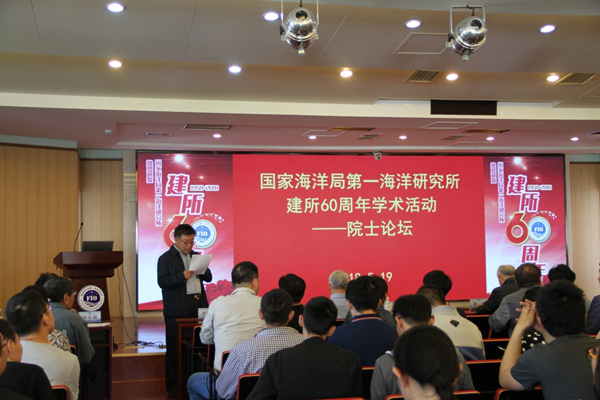 |
| Director Li Tiegang hosts the conference |
Academician Liu Jingnan opened the academician forum with a report entitled “the Strategic Thinking on BDS Plus in the Age of Intelligence”. Academician Liu introduced the trend of development of the intelligent application of BDS Plus from the perspective of interdisciplinary integration and group intelligence open-up, and elaborated on the interdisciplinary integration technology mode of BDS/GNSS enhancement plus.
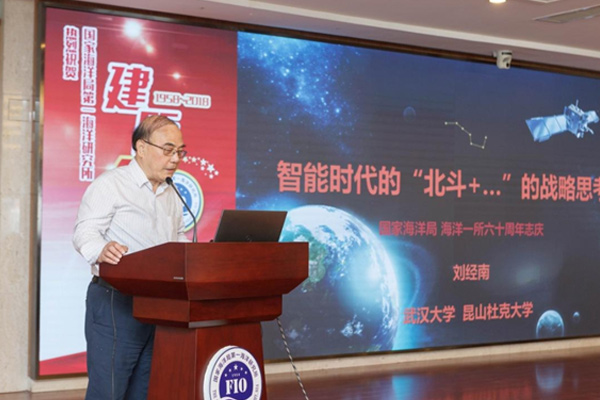 |
| Academician Liu Jingnan delivers a report |
Academician Hu Dunxin delivered a report entitled the “Brief Review on NPOCE Progress Since 2010”. Academician Hu first introduced the basic situation of the NPOCE project, and then reported the progress and main research achievements in recent years of NPOCE. At last, Academician Hu described the outlook for the future development of NPOCE.
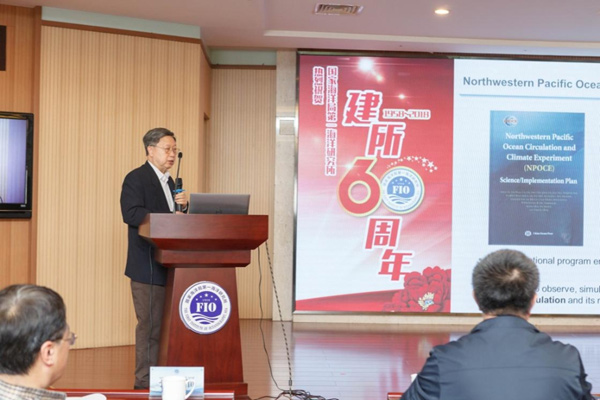 |
| Academician Hu Dunxin delivered a report |
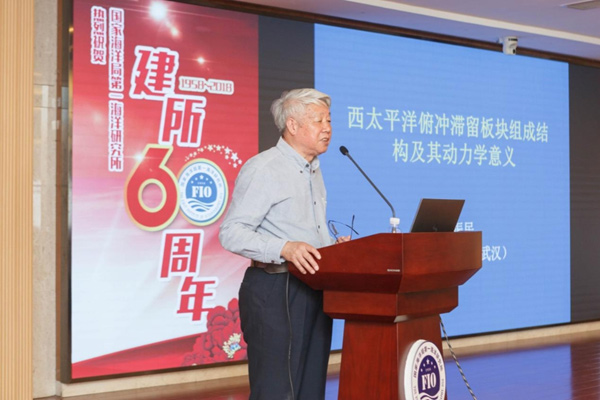 |
| Academician Jin Zhenmin delivers a report |
Academician Huang E delivered a report entitled “What have I learned at FIO?” Academician Huang started from space-time scale differences, and then moved onto the importance and complexity of turbulent process, and finally suggested the advantages of Holo-Hilbert Spectral Analysis in analyzing nonlinear questions.
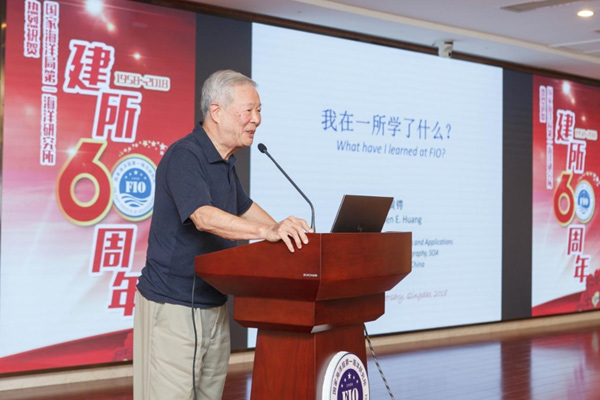 |
| Academician Huang E delivers a report |
Academician Jiao Nianzhi delivered a report entitled “Deep-sea Biological Carbon Storage and Climate Change”. This report introduced the scientific background, the basic content, the climatic effect, and prospect of application of the microbial carbon pump in the ocean. He also introduced the most recent international development on the microbial carbon pump in the ocean.
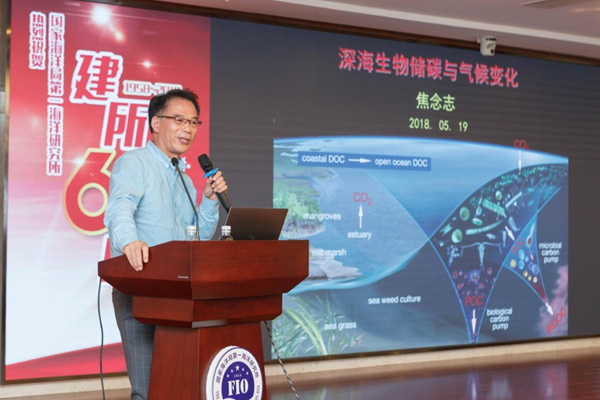 |
| Academician Jiao Nianzhi delivers a report |
Academician Dai Minhan delivered a report entitled “Mechanism of Carbon Sequestration in Marine Desert Biological Pump”. This report started from the characteristics of the distribution of marine deserts, focused on marine desert biological pump, raised the EZ biogeochemical hypothesis and described the outlook for future research.
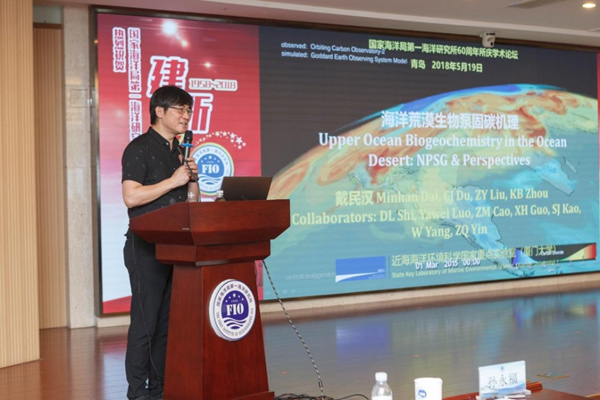 |
| Academician Dai Minhan delivers a report |


